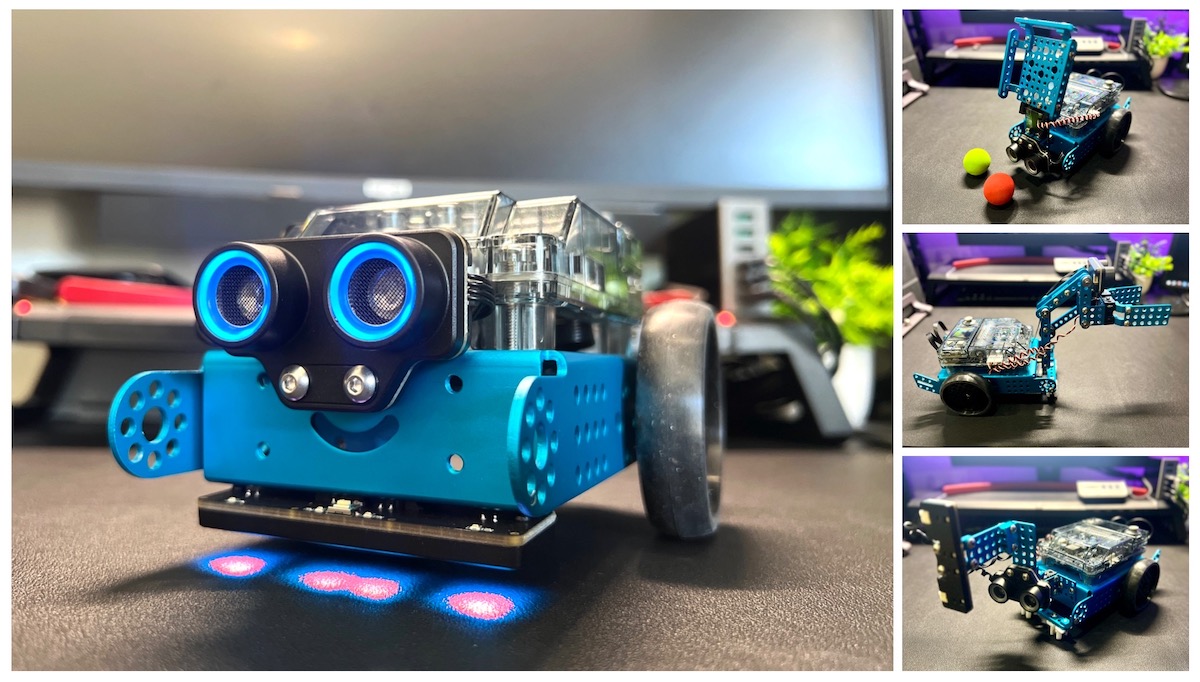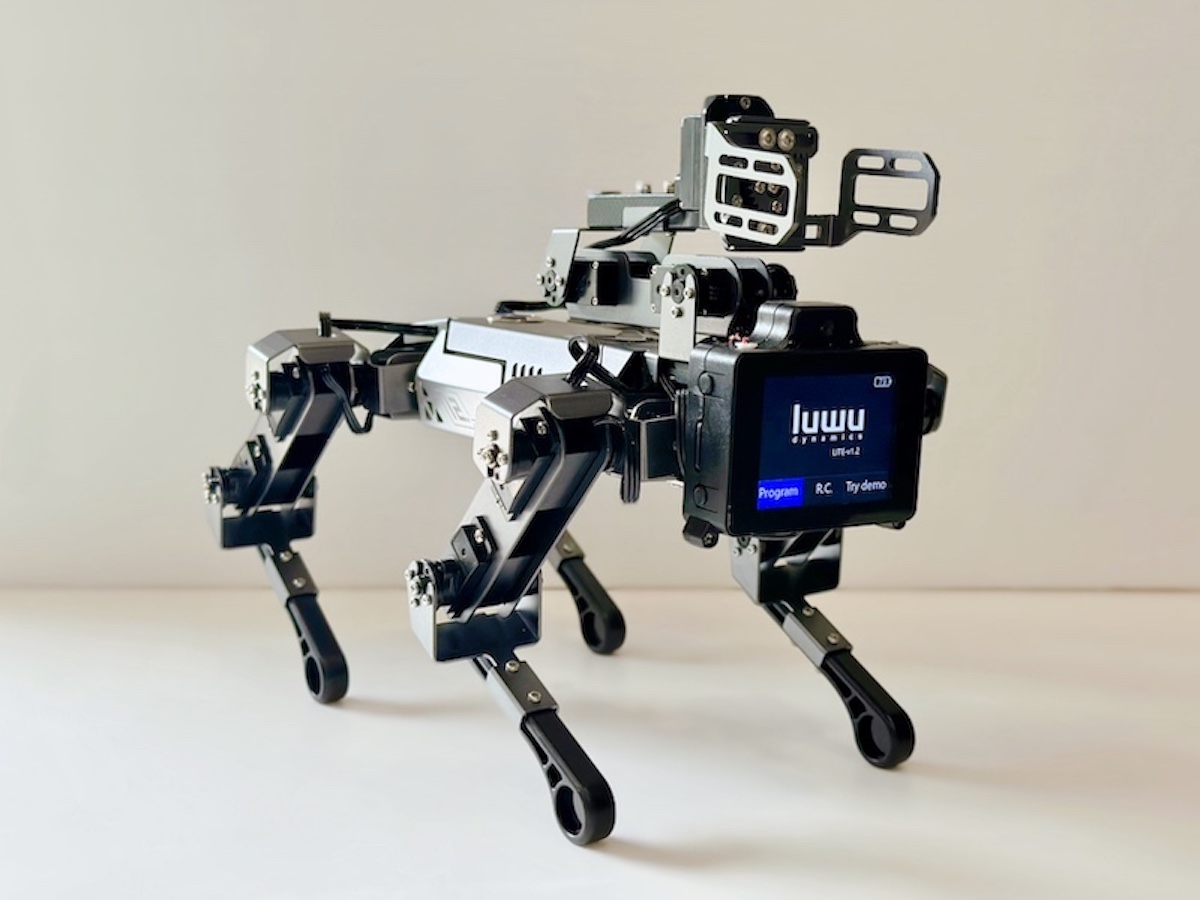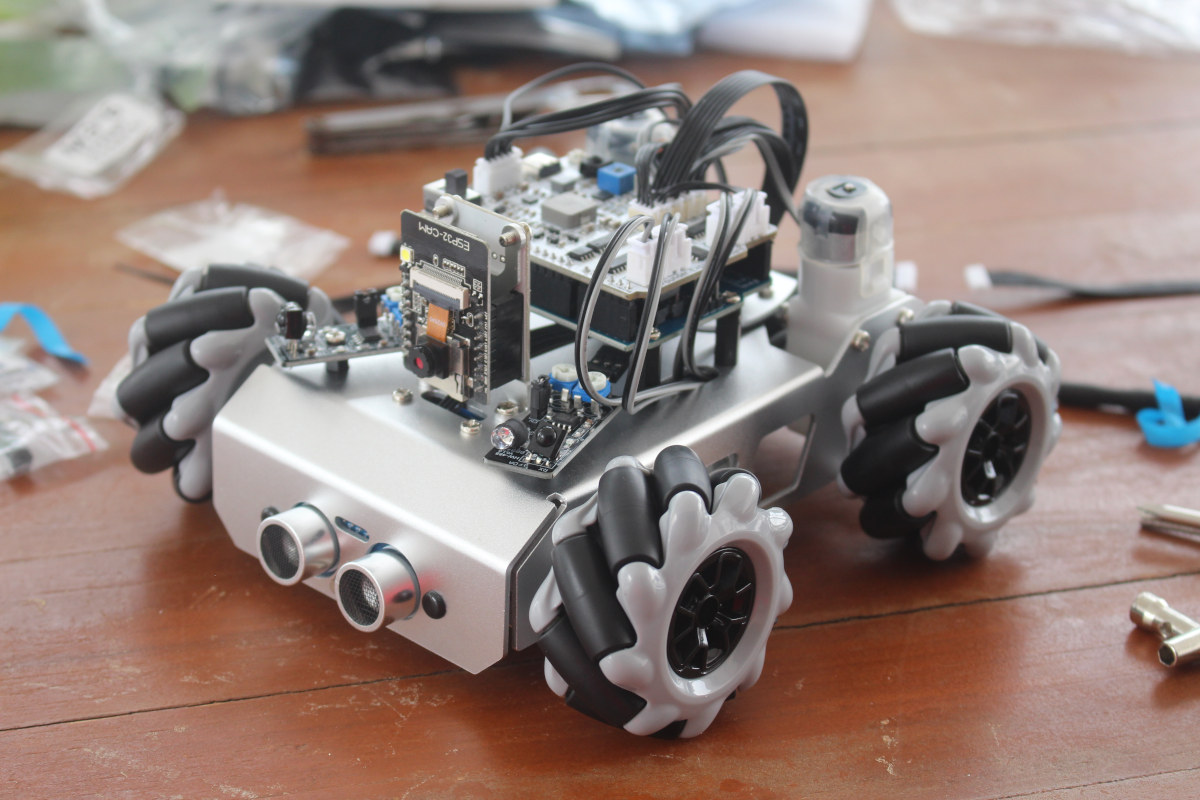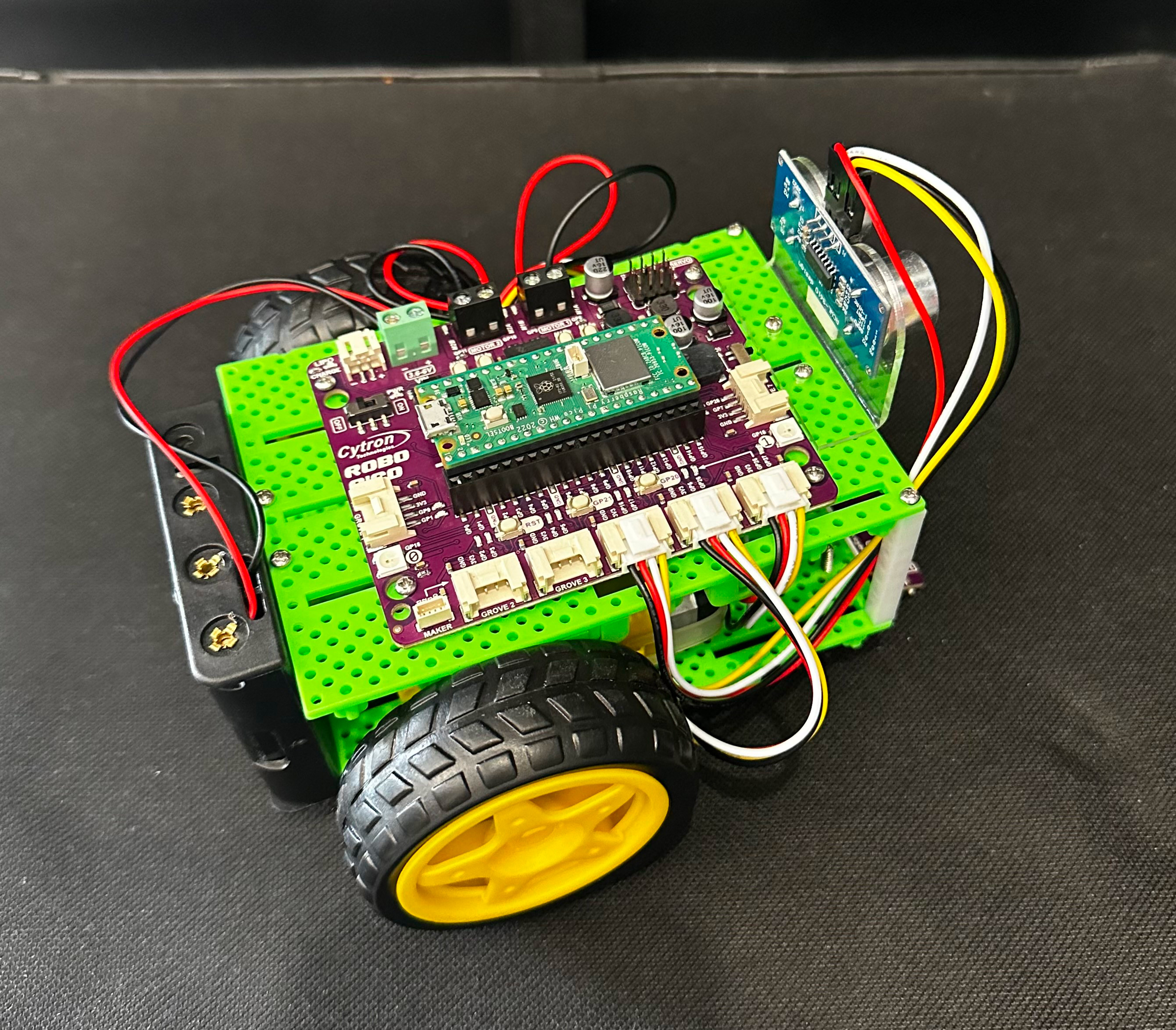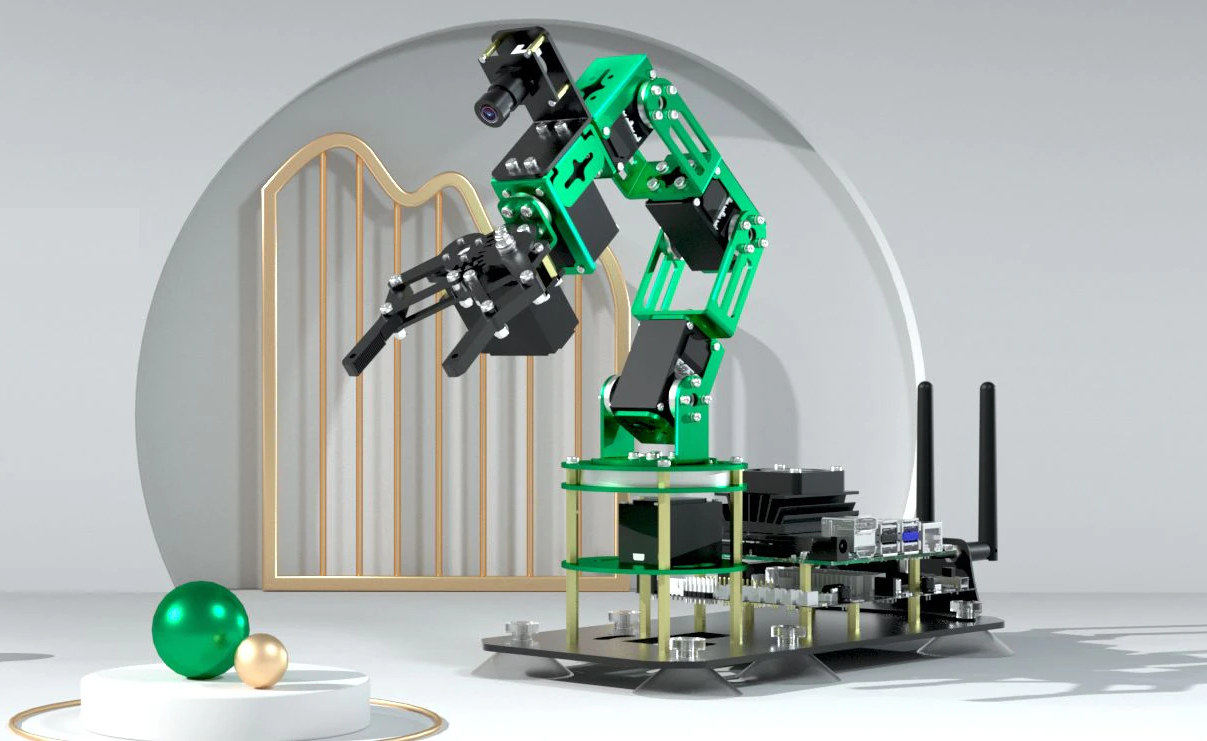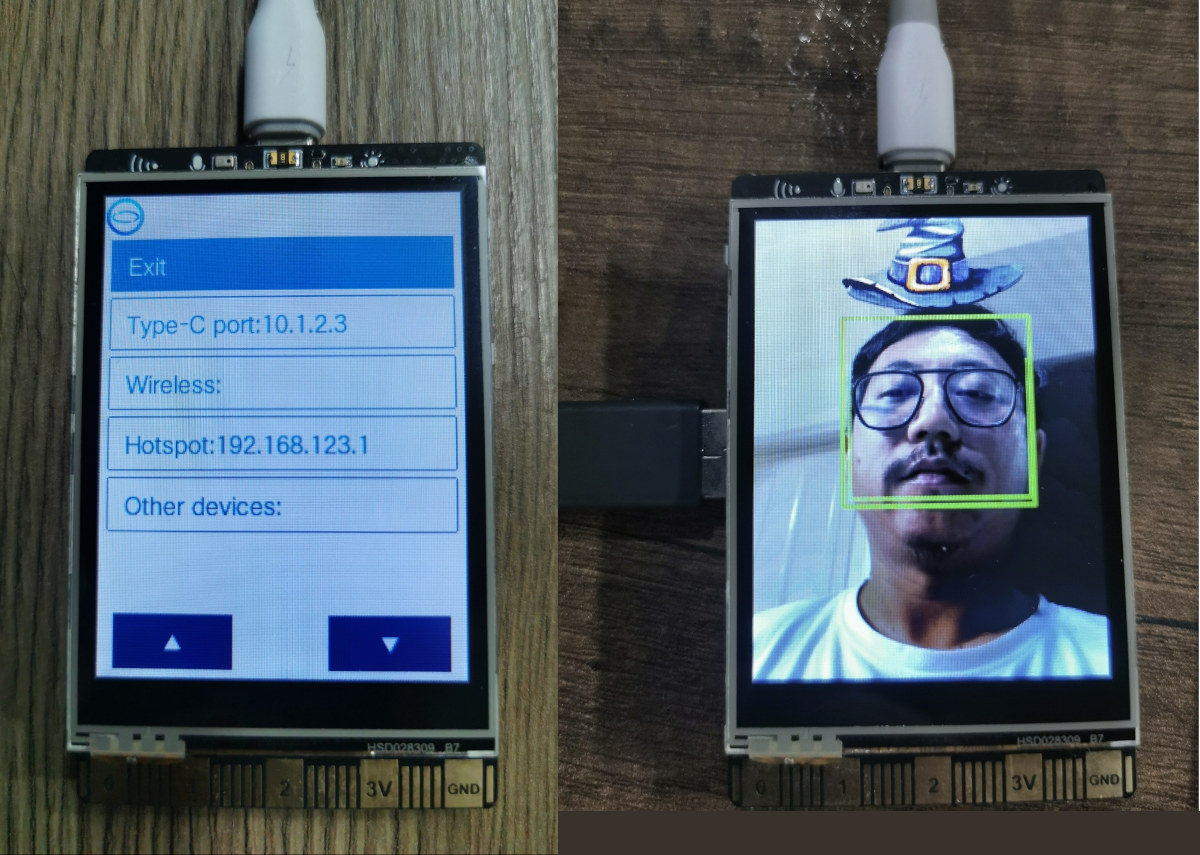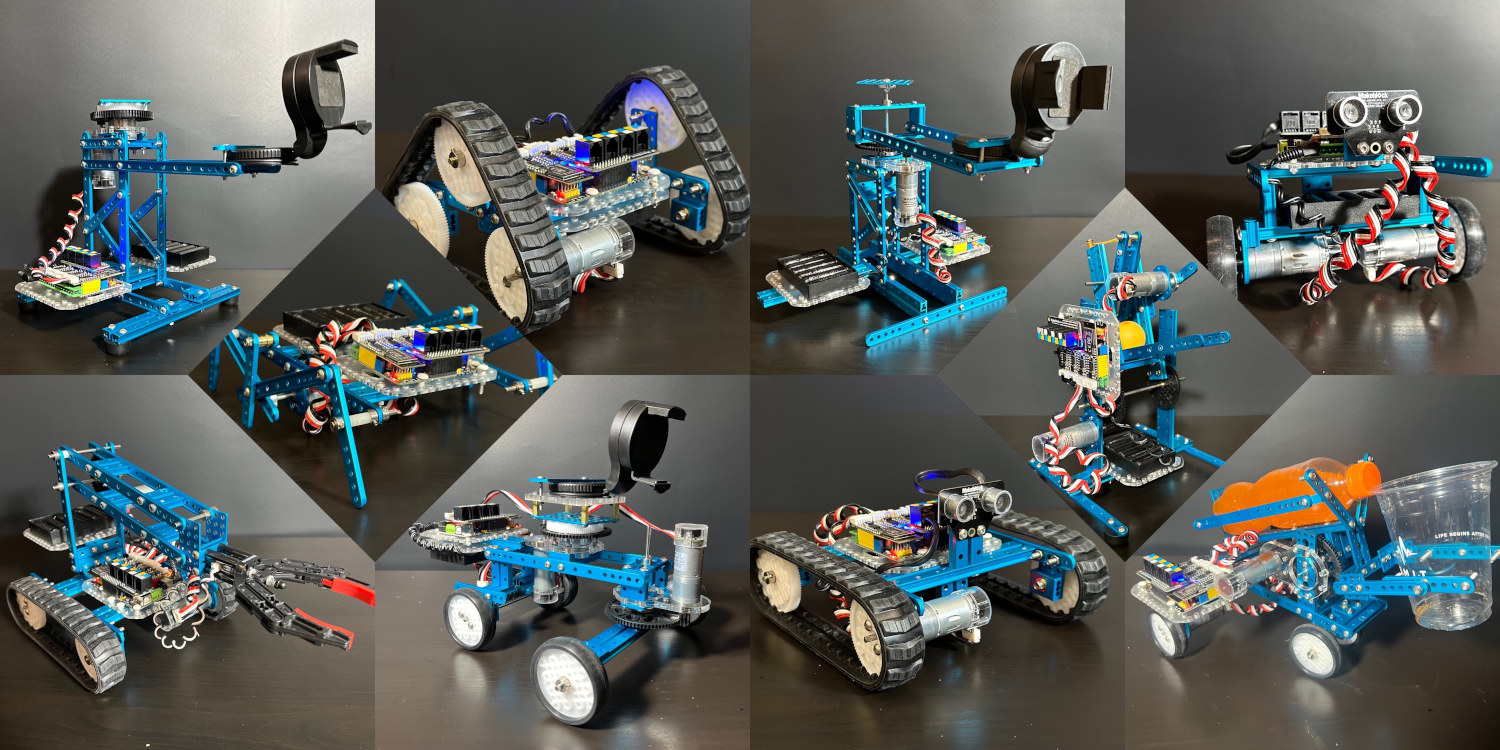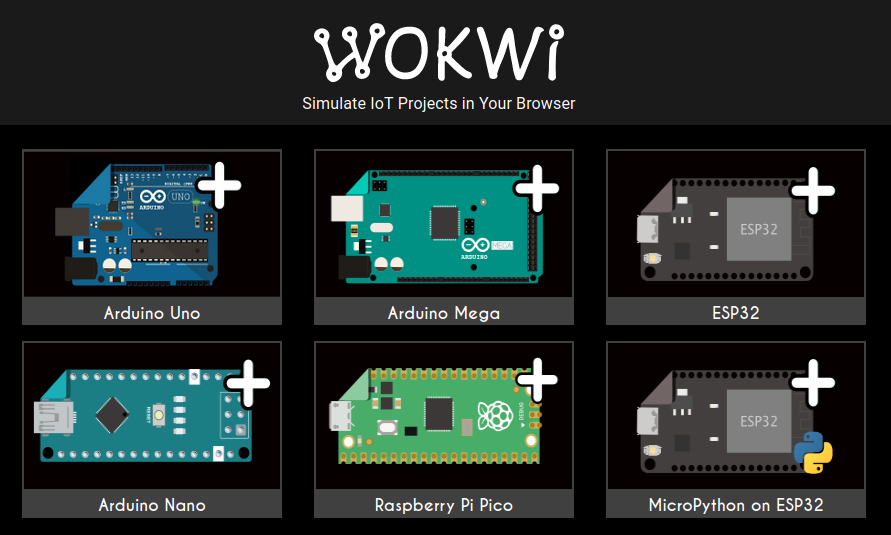MakeBlock mBot Neo, also known as mBot2, is an educational robot that builds upon the previous generation mBot1 robot, and the company has sent us a review sample, following our earlier review of the Ultimate 2.0 10-in-1 educational robot kit, along with the Smart World Add-on Pack. The mBot Neo features a new ESP32-based CyberPi control board with WiFi connectivity for IoT and AI support. The robot is also equipped with a 2nd generation Ultrasonic sensor with improved object detection accuracy and status indicator, a built-in 4-ch RGB line sensor that can detect colors, as well as a new drive motor that comes with an encoder for more precise motion control. The mBot Neo robot kit is expandable with metal parts from other Makeblock models, mBuild modules and various electronic modules can be added making it also possible to build custom robots with third-party structural parts. The mBot Neo robot […]
Review of CM4 XGO Lite – A Raspberry Pi CM4 based smart robot dog with a robotic arm
The CM4 XGO Lite is a smart robot dog based on Raspberry Pi CM4 system-on-module and designed to learn to program using Blockly, Python, and ROS. This four-legged robot also happens to feature a 3-joint robot arm and a robot gripper installed on the back that can pick up light objects. The Raspberry Pi CM4 module drives the LCD screen and camera and performs AI and computer vision processing, while each joint is controlled with a servo motor, and a 6-axis tilt sensor ensures stable walking and movement. We’ve already discussed the capabilities of the CM4 XGO Lite, aka XGO Lite 2, when it was announced earlier this year, so we’re not going to go into details here, but some of the highlights include support for faster AI edge computing applications such as face detection and object classification, omnidirectional movement, six-dimensional posture control, posture stability, and multiple motion gaits. Robot […]
SunFounder Zeus Car Kit review – A fun toy and Arduino learning tool
SunFounder Zeus Car Kit is an Arduino UNO and ESP32 Cam-based educational kit for children (and adults) that can be used to learn more about electronics, robotics, and programming. It’s a car comprised of four 6cm Mecanum wheels for omnidirectional motion and various sensors that can be controlled with an Android app enabling first-person view (FPV) thanks to the built-in camera. The company sent us a Zeus Car Kit for review and evaluation, and after assembly, we’ll use it in “Play Mode”, or in other words a toy that basically works out of the box, before checking out the “Programing Mode” and related Arduino tutorials to evaluate it’s educational potential. Zeus Car Kit Unboxing The kit comes in a nice retail package which highlights some of the capacities of the kit: FPV, Omnidrive, AI vision, compass, IR control, APP control, and RGB lights. The package itself contains four more boxes […]
Robo Pico review – A Raspberry Pi Pico W-based motor & sensor control board tested with BocoBot robotic kit
Cytron Robo Pico is a carrier board for the Raspberry Pi Pico (W) specially designed for robotics & IoT applications with a 2-channel DC motor driver, four servo motor ports, and seven Grove I/O connectors to connect various sensors and/or actuators. When the company asked us to review the Robo Pico board, I noticed they had a car robotic kit based on the board called the BocoBot that comes with installation videos and five tutorials including obstacle avoidance movement with ultrasonic sensors, light search, line following, and WiFi remote control. So I asked for the full kit to make the review more fun and interesting. Robo Pico board Robo Pico specifications: Supported MCU board – Raspberry Pi Pico/Pico W and compatible Motor control 2x DC Motor terminals with Motor status LEDs for each motor terminal 2x motor test buttons for each motor terminal Header to connect to 4x servos Expansion […]
Yahboom DOFBOT 6 DoF AI Vision robotic arm for Jetson Nano sells for $289 and up
Robotic arms can be expensive especially if you want one with AI Vision support, but Yahboom DOFBOT robotic arm designed for NVIDIA Jetson Nano offers a lower cost alternative as the 6 DoF robot arm sells for about $289 with a VGA camera, or $481 with the Jetson Nano SBC included. We previously published a review of the myCobot 280 Pi robotic arm from Elephant Robotics, and while it’s working well, supports computer vision through the Raspberry Pi, and is nicely packaged, it sells for around $800 and up depending on the accessories, and one reader complained the “price tag is still way too high for exploration“. The DOFBOT robotic arm is looking more like a DIY build, but its price may make it more suitable for education and hobbyists. DOFBOT robotic arm main components and specifications: SBC – NVIDIA Jetson Nano B01 developer kit recommended, but Raspberry Pi, Arduino, […]
UniHiker review – A Linux-based STEM education platform with IoT and AI support, Micro:bit edge connector
DFRobot’s UniHiker is a STEM educational platform that was originally launched in China, but now UniHiker is now available worldwide through the DFRobot shop. The company has sent us a UniHiker sample for review, so let’s unpack the kit and learn how to use the UniHiker platform. The main component of the kit is the Linux-powered UniHiker board which features a 2.8-inch resistive touchscreen display and a BBC Micro:bit edge connector, so we can use expansion boards for the Micro:bit board. Let’s start unboxing it together. UniHiker unboxing DFRobot sent us the UniHiker platform by DHL. The package is a familiar-looking DFRobot box in orange color and comes with a plastic box to safely store the UniHiker board and accessories after use. The plastic box contains another plastic box with the board, some 3-pin and 4-pin cables for Gravity ports, and a USB Type-C cable. The UniHiker is like a […]
Makeblock Ultimate 2.0 review – A multi-function 10-in-1 educational robot kit
Makeblock Ultimate 2.0 is an educational robot kit that can be used to easily create up to 10 different types of robots. An Arduino-compatible Mega 2560 MCU board serves as the main controller and there are over 550 mechanical parts and electronic modules. The robot can drive up to 4 encoder and stepping motors, control up to 10 servo motors to work simultaneously, and can also be connected to Arduino and Raspberry Pi boards for more complex projects. The review/tutorial is fairly long, so if you are short on time, you can jump to different sections by clicking on some of the links below: MegaPi control board and main modules description mBlock 5 visual-programming IDE installation Programming of DC Encoder motors, Ultrasonic sensor, Line follower module, motion sensor, RJ25 adapter, and shutter module mBlock mobile app Building the ten models for the Makeblock Ultimate 2.0 robot kit (as shown in […]
Wokwi – An Arduino, Raspberry Pi Pico, and ESP32 board simulator
Wokwi is an online simulator for Arduino, Raspberry Pi Pico, and ESP32 boards, or even your own custom microcontroller board designed to learn programming without the actual hardware. My girlfriend’s daughter has just attended a free 5-day online course about AI, IoT, ESP32, MicroPython, and more organized by King Mongkut’s Institute of Technology Ladkrabang (KMITL) and IMAKE Innovation, a STEM education company in Thailand. I was told they had some homework for ESP32 as part of the course, so I asked her whether she wanted an ESP32 board. But she said no need. So then I asked how to program the ESP32 without the board, or do they have a simulator? And indeed I was sent the screenshot below along with a blurry video showing the LED display updated as the program runs in the web browser. Considering ESP32 boards are so cheap and external modules or a breadboard are […]


